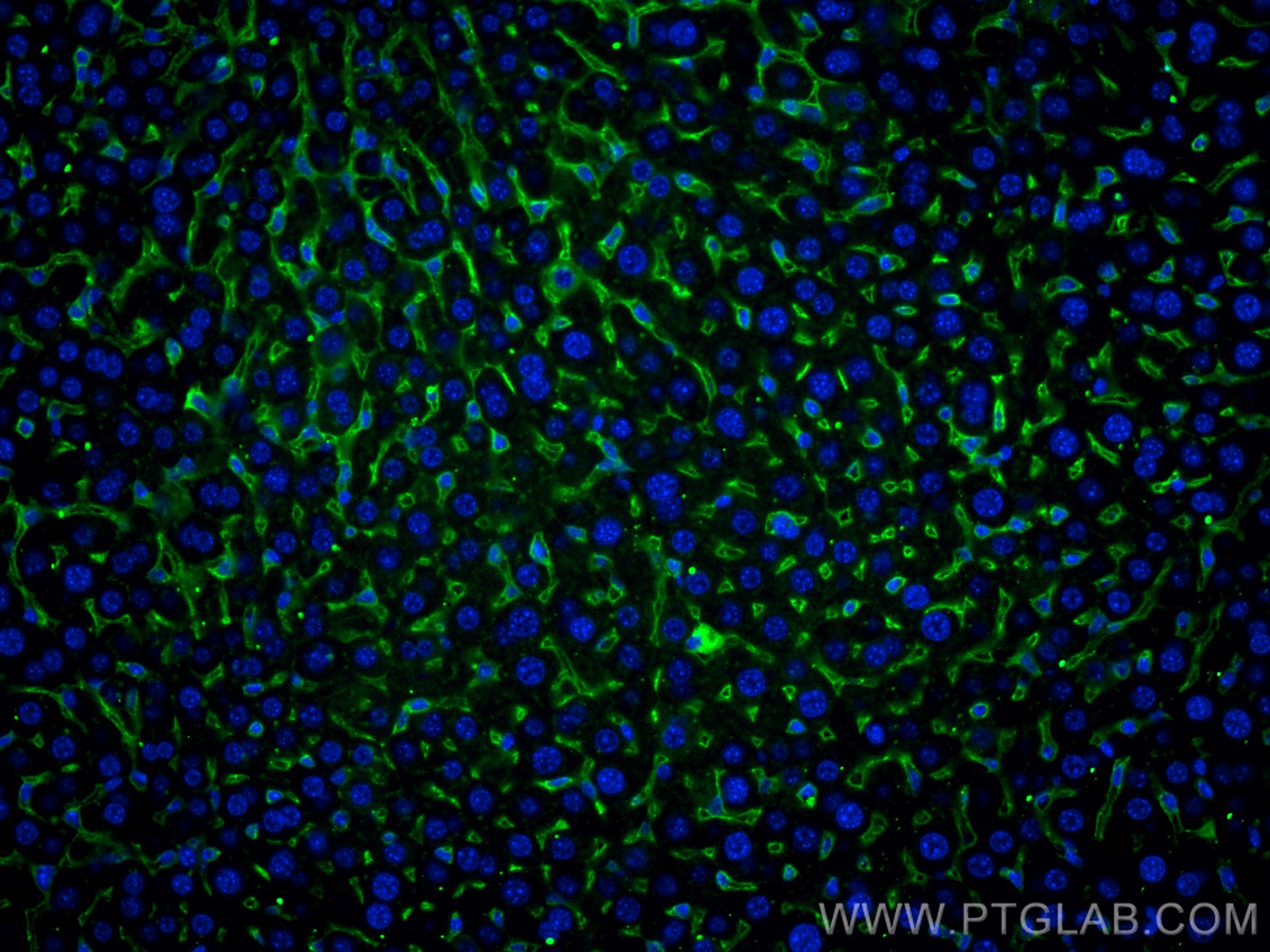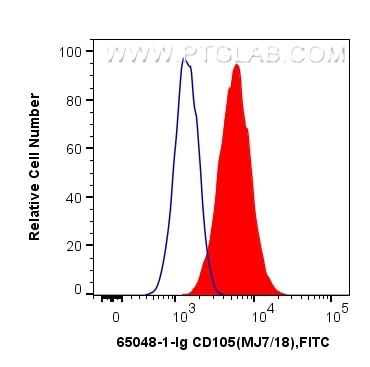Anticorps Monoclonal anti-CD105
CD105 Monoclonal Antibody for FC, IF
Hôte / Isotype
Rat / IgG2a, kappa
Réactivité testée
souris
Applications
IF, FC
Conjugaison
Non conjugué
CloneNo.
MJ7/18
N° de cat : 65048-1-Ig
Synonymes
Galerie de données de validation
Applications testées
| Résultats positifs en IF | tissu hépatique de souris, |
| Résultats positifs en cytométrie | cellules bEnd.3, |
Dilution recommandée
| Application | Dilution |
|---|---|
| Immunofluorescence (IF) | IF : 1:200-1:800 |
| This reagent has been tested for flow cytometric analysis. It is recommended that this reagent should be titrated in each testing system to obtain optimal results. | |
| Sample-dependent, check data in validation data gallery | |
Informations sur le produit
65048-1-Ig cible CD105 dans les applications de IF, FC et montre une réactivité avec des échantillons souris
| Réactivité | souris |
| Hôte / Isotype | Rat / IgG2a, kappa |
| Clonalité | Monoclonal |
| Type | Anticorps |
| Immunogène | Peau de souris enflammée |
| Nom complet | endoglin |
| Numéro d’acquisition GenBank | BC029080 |
| Symbole du gène | Eng |
| Identification du gène (NCBI) | 13805 |
| Conjugaison | Non conjugué |
| Forme | Liquide |
| Méthode de purification | Purification par affinité |
| Tampon de stockage | Solution saline tamponnée au borate, pH 8,2. |
| Conditions de stockage | Store at 2-8°C. Stable for one year after shipment. |
Informations générales
Endoglin (ENG, CD105) is a homodimeric cell membrane glycoprotein of 180 kDa, composed of disulphide-linked subunits of 90-95 kDa. Endoglin is a proliferation-associated and hypoxia-inducible protein mainly expressed on vascular endothelial cells. It acts as an accessory receptor for transforming growth factor beta (TFG-β) and is involved in vascular development and remodelling. The important role of Endoglin in angiogenesis and in tumor progression makes it an ideal target for antiangiogenic therapy and a good marker for tumor prognosis. (PMID: 1326540; 14528280; 21737653; 12773481)
Protocole
| Product Specific Protocols | |
|---|---|
| IF protocol for CD105 antibody 65048-1-Ig | Download protocol |
| Standard Protocols | |
|---|---|
| Click here to view our Standard Protocols |



